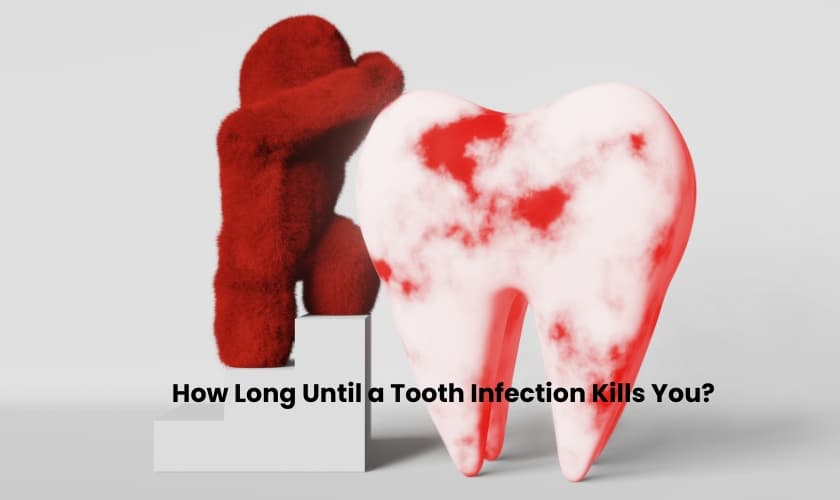The timeframe within which a tooth infection can lead to death can vary significantly. Let’s delve deeper into this question for a more comprehensive understanding.
How do you know if a tooth infection is killing you?
Identifying the warning signs of a potentially life-threatening tooth infection is crucial for prompt intervention. Symptoms such as severe pain, swelling, fever, difficulty swallowing, and swollen lymph nodes are indicative of a serious infection that requires immediate medical attention. Additionally, symptoms like nausea, vomiting, and confusion may indicate that the infection has spread to other parts of the body, necessitating urgent treatment.
How long can you survive with a tooth infection?
The survival rate for individuals with untreated tooth infections depends on various factors, including the extent of the infection, the individual’s overall health, and the presence of underlying medical conditions. While some people may experience rapid deterioration and complications, others may be able to withstand the infection for a longer period. However, it’s essential to understand that delaying treatment significantly increases the risk of serious complications and decreases the likelihood of a positive outcome.
How do you know if a tooth infection is spread?
Tooth infections can spread to surrounding tissues and organs through the bloodstream, resulting in potentially life-threatening complications. Common sites of spread include the jawbone, facial tissues, sinuses, and even the brain. If you experience symptoms such as facial swelling, difficulty breathing, chest pain, or neurological deficits, it could indicate that the infection has spread beyond the tooth and requires immediate medical attention.
Can your body fight off a tooth infection?
While your body’s immune system has the potential to fight off a mild tooth infection, it’s not a guaranteed success. The strength of your immune system, the severity of the infection, and the type of bacteria involved all play a role.
In most cases, relying solely on your immune system to combat a tooth infection is a risky proposition. Antibiotics are the cornerstone of treatment, effectively eliminating the bacteria and allowing the infection to heal.
Here’s an important point to remember: never ignore a toothache. Don’t wait for the infection to worsen in the hope that your body will miraculously fight it off. A timely visit to the dentist can prevent a minor problem from snowballing into a major health crisis.
Is 5 days of antibiotics enough for a tooth infection?
While a standard course of antibiotics (typically 5-7 days) is usually sufficient to treat a tooth infection, there are exceptions. In severe cases, a longer course of antibiotics may be necessary for tooth infection. Additionally, the dentist might recommend draining an abscess (a pus-filled pocket at the site of the infection) to facilitate healing.
In the most critical scenarios, particularly if the infection has spread beyond the tooth, hospitalization and intravenous antibiotics might be required.
When is a Tooth Infection an Emergency?
Knowing when a tooth infection becomes an emergency can save valuable time and potentially your life. Here are some situations that warrant immediate medical attention for a tooth infection:
- Severe, throbbing pain that is unresponsive to pain relievers
- Difficulty breathing or swallowing
- Facial swelling that is rapidly progressing
- Fever above 102°F (38.9°C)
- Redness, swelling, and tenderness in your jaw
- Feeling faint or dizzy
- Pus draining from the infected tooth
If you experience any of these symptoms, don’t hesitate to seek emergency care. Visit your dentist Sugar Land or proceed to the nearest emergency room. Early intervention is crucial to prevent the infection from spreading and causing life-threatening complications.
What risk factors can lead to complications from an abscess?
There are several risk factors that can elevate the likelihood of experiencing complications from a dental abscess, including:
- Advanced age
- Diabetes diagnosis
- Immunocompromised status
- Malnourishment
Can home remedies help treat a tooth infection?
The internet is full of suggestions for home remedies for tooth infections. While some might offer temporary relief, they should never be considered a substitute for professional treatment. Here’s why:
- Ineffectiveness: Home remedies often lack the potency to combat a deep-seated infection.
- Delayed Diagnosis: Attempting home remedies can delay seeking professional help, allowing the infection to worsen.
- Potential Risks: Certain home remedies might irritate your gums or even worsen the infection.
Remember, a timely visit to the dentist is the best course of action for a tooth infection.
The Bottom Line
Toothaches are a nuisance, but they shouldn’t be ignored. A seemingly minor infection can escalate into a serious health concern if left untreated. Early diagnosis and treatment by a dentist are crucial to prevent complications and ensure a swift recovery.
By understanding the warning signs and potential dangers of a tooth infection, you can take charge of your oral health and avoid a potentially life-threatening situation. Remember, a healthy smile starts with good oral hygiene and regular dental checkups. Don’t wait for a throbbing toothache to remind you of the importance of taking care of your teeth!
